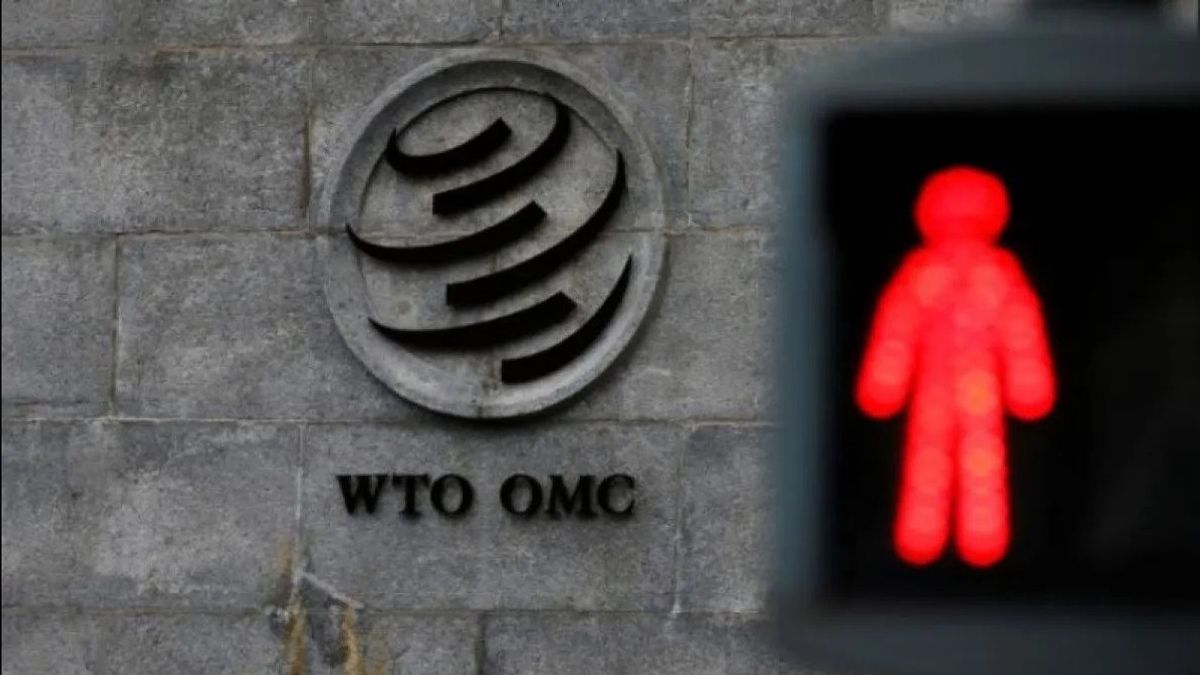JAKARTA - Indonesia is known to have 5 cases or demands in the World Trade Organization or world trade organization.
Special Staff to the Minister of Trade for International Trade, Bara Krishna Hasibuan said these five cases were quite challenging cases because Indonesia also had cooperative relations with the European Union or the European Union regarding the Comprehensive Economic Partnership Agreement (CEPA).
"So we have 5 cases, so our relationship with EU is quite challenging. We want to complete the CEPA negotiations, on the other hand, our party has 5 cases in the WTO," Bara said in the Mining Zone quoted on Tuesday, June 11.
He detailed that the five cases were:
1. EU Lawsuit on the Prohibition of Nickel Ore exports
Based on VOI records, Indonesia was sued by the European Union regarding the ban on exporting raw minerals, especially nickel abroad which was set to take effect from January 1, 2020. In the lawsuit, Indonesia was declared defeated in October 2022.
Based on the results of the trial, Indonesia was declared defeated because the downstream industry was considered immature by the WTO. According to WTO, countries that prohibit the export of a commodity must have a truly developed industry, while Indonesia is considered not to have achieved this ability.
2. Imposition of BMAD and BMI from the European Union on Indonesian Steel Products
The European Union is known to have imposed Anti-Dumping Import Duty (BMAD) and Countervailing Duty (BMI) on imported Steel Resistant Cold Canai (Cold Rolled Stainless Steel) from Indonesia.
In October 2019, the European Union Government officially started an anti-subsidized investigation into HRSS products from Indonesia based on an EUROFER application.
The European Union accuses the Indonesian government of providing incentives or financial assistance for producers through a series of prohibition policies or restrictions on the export of mineral raw materials, namely nickel ore, coal, and metal screens, thereby reducing the price of these raw materials in Indonesia.
The European Union also suspects that there is support from the Government of Indonesia and the Government of the People's Republic of China (RRT) for the development of industrial estates in Morowali as well as the mineral and metal industry in the location through the cooperation of the Indonesian-RRT bilateral economy.
3. Palm Oil Dispute with the European Union
Indonesia and the European Union also have cases of crude palm oil dispute (CPO). The Indonesian government filed a lawsuit against the European Union at the WTO on December 9, 2019. The lawsuit was filed against the policy of Renewable Energy Directed II (RED II) and Delegated Regulation of the EU.
Coupled with the implementation of the European Union Deforestation-Free Regulations (EUDR) anti-deforestation Act. These policies are considered to discriminate against Indonesian palm oil products.
4. The Indonesian Biodiesel Lawsuit
Earlier on Monday 9 December 2019, the European Union Commission set a biodiesel import duty rate from Indonesia of 8 to 18 percent, the same amount as the interim tariff proposed by the EU since August 2019. The EU ensures the imposition of an anti-subsidized import duty tariff (BMAS) on Indonesian biodiesel on subsidies that are considered detrimental to EU producers.
SEE ALSO:
In a release published by the European Commission, Indonesian biofuel producers are considered to have sold biodiesel products at lower prices. The investigation into the case of biodiesel subsidies found that Indonesian producers benefited from subsidies, taxes, and access to raw materials below market prices. "This makes EU manufacturers suffer losses," the European Commission said as quoted by Reuters.
5. RI's Lawsuit against the European Union regarding Fatty Acid's Import Duty
The Indonesian government has officially sued the European Union to the WTO regarding the duty to enter fat acid or fatty acids on February 12, 2024.
Adapted from Reuters, Tuesday, June 11, the Indonesian government assumed that the EU's actions were not in accordance with WTO regulations because fatty acids were found in various products such as drugs to industrial lubricants.
The English, Chinese, Japanese, Arabic, and French versions are automatically generated by the AI. So there may still be inaccuracies in translating, please always see Indonesian as our main language. (system supported by DigitalSiber.id)
















